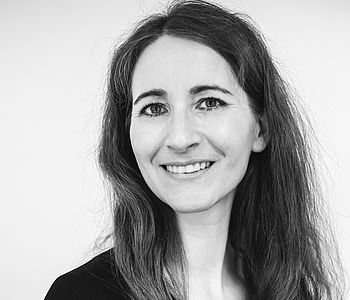PD Dr. Patricia Hertel | Researcher

Home Institution
:
Centre Marc Bloch
|
Position
:
Researcher
|
Disciplines
:
History
|
Biography
Patricia Hertel is a researcher at the Centre Marc Bloch Berlin and Privatdozentin at the University of Basel.
As a historian for nineteenth and twentieth century Europe, she focuses on transnational history and cultural history. Her second book (under contract with De Gruyter) examines tourism to the Western European dictatorships. Currently, she investigates the history of professional travel in the age of aviation.
After a training as a publishing manager, she studied German Philology, History, and Portuguese Philology at the Ludwig Maximilian University in Munich. Parallel to her university studies, she trained as a journalist and did freelance work for the press and radio. She concluded her doctoral studies at the University of Fribourg (Switzerland) with a PhD thesis entitled The Crescent Remembered: Islam and Nationalism on the Iberian Peninsula before going on to hold the position of postdoc researcher at the University of Basel. With the support of an Advanced Postdoc.Mobility Fellowship from the Swiss National Science Foundation, she has been a visiting scholar at King’s College London, the German Historical Institute London, the Universidad Complutense de Madrid, and the Universitat de València. As a lecturer at the universities of Basel, St. Gallen, Lucerne, and Fribourg/Switzerland, she has taught over the past decade modern and contemporary European history, as well as academic history writing. In the academic year 2023/24, she was a visiting professor for global history at the FU Berlin.
Researchtopic
European history of the nineteenth and twentieth centuries, especially:
- History of tourism, travel, and mobility
- History of infrastructure and its uses
- History of international relations
- Nations and nationalism
- Dictatorships and authoritarian regimes
- Spatial concepts and ideas, “mental mapping
Air Travel and the Transformation of the Modern Business World, 1920s–1990s
The possibility of travelling by air profoundly changed the way the world does business. Being able to cover longer distances in shorter times altered workflows in production and distribution for international corporations as well as the frequency, location, and length of meetings and business trips. In turn, air travel triggered new business models, and companies arose whose very existence was subject to this capability. Overall, the modern business world became increasingly dependent on air travel, with a social spectrum ranging from the sales representatives of medium-sized companies to a cosmopolitan elite eventually becoming what sociologist Richard Senett has described as “Davos Men”. With cultural historical methods, this project analyses how air travel, along with modern communication technologies, transformed international business relations. Air travel for professional purposes was, as the project argues, an important factor for creating and distinguishing a new type of middle and upper class in Europe and beyond. It triggered dynamics both of connections between groups of people as well as the marginalisation of others. Studying the practices and conventions around air travel in business relations serves as a perspective on how international and global mobility transformed business milieus in the twentieth century.
Beach diplomacy: international networks and the promotion of Benidorm in Francoist Spain during the 1950s and 1960s
April 22, 2025Patricia Hertel
Facilitating and promoting tourism in Spain during the post-war decades was an international endeavour. For Spanish and European businesspeople, tourism in Spain provided an economic win–win situation. Beyond that, those tourism promoters who were sympathetic with the Franco regime considered it an occasion to improve Spain’s international reputation. Using the promotion of Benidorm and the ‘Costa Blanca’ in the 1950s and 1960s as a case study, this article analyses the networks and negotiations among local politicians, international tour operators and airlines, as well as prominent tourists. This ‘beach diplomacy’ fostered tourism in Spain as a modern consumer product that was compatible with different economic and ideological interests, as well as transcended the political divisions between democracies and dictatorships in the geopolitical ‘West’.
https://doi.org/10.1080/13507486.2024.2442616
Free Movement in Postwar Europe: Exploring a Multivalent Concept. Introduction
January 17, 2025Patricia Hertel
Journal of Modern European History, Volume 23 Issue 1
Collection: Journal of Modern European History, Volume 23 Issue 1
The progressive elevation of ideologies and discourses of free movement constitutes a vital narrative of modern European history. This introduction offers a brief genealogy of free movement in European thought and politics in modern liberalism since the late eighteenth century and outlines the actors, spaces and conflicts of free movement in postwar Europe. Furthermore, it offers a discussion of the place of free movement in recent historiography.
https://doi.org/10.1177/16118944241307766